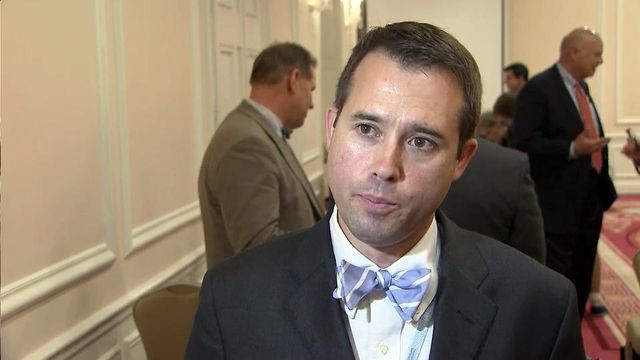UNC researcher preps others to fight Ebola
As global concern about the Ebola epidemic continues to grow, UNC-Chapel Hill is taking a leading role in preparations in the Southeast and the rest of the United States.
Posted — UpdatedDr. William Fischer, a professor at the UNC School of Medicine, spent three weeks in rural Guinea this summer, taking care of Ebola patients at the epicenter of the outbreak. He's now helped design a course for other medical personnel headed for the area, and he's helping UNC Hospitals prepare should Ebola patients need treatment in Chapel Hill.
Fischer told UNC-Chapel Hill's Board of Trustees Thursday that fear is making it hard to recruit the thousands of medical staff needed to treat Ebola patients and slow the growing epidemic. He said he understands that reaction. When the World Health Organization asked him to go, he says he was terrified, but he didn't need to be.
"It's not like the movies portray. Everybody isn't bleeding out of every orifice of their body," he said. "They look very similar to the patients you take care of in the U.S., and with the right equipment and the right processing in place, you can actually provide really good care safely."
Fischer recently finished work on a course for the U.S. Centers for Disease Control and Prevention, teaching medical caregivers how to stay safe in the field.
"People learn how to put on their personal protective equipment, how to take it off safely, how to move around an Ebola treatment unit safely," he said.
The course is being taught weekly, and he said he hopes it will help more caregivers feel secure enough to volunteer. He's also helping to design an Ebola unit at UNC Hospitals. There are no plans to bring patients to the Triangle, he said, but it's important to be prepared.
"We would rather be over-prepared than under-prepared," he said. "We're just saying, 'Hey, if this does spread like people are projecting, like the CDC's projecting, how do we keep our community safe?' And so, UNC is taking a really strong lead in that direction."
Chancellor Carol Folt said UNC-Chapel Hill has been reaching out to other schools in the university system, making sure they're prepared as well.
"We were probably among the first in the state to start thinking about it because we have so many resources," Folt said. "We’re in a very good position to not only be confident about our own campus but actually to be very helpful throughout the state."
Some models predict as many as 1 million people may be infected by the end of the year if the epidemic isn't stopped. Still, Fischer, who said he wants to return to Guinea by the end of the year, said people in the U.S. don't need to worry.
"We absolutely have the infection control and prevention mechanisms in place that we can actually stop an outbreak before it starts," he said.
• Credits
Copyright 2024 by Capitol Broadcasting Company. All rights reserved. This material may not be published, broadcast, rewritten or redistributed.





